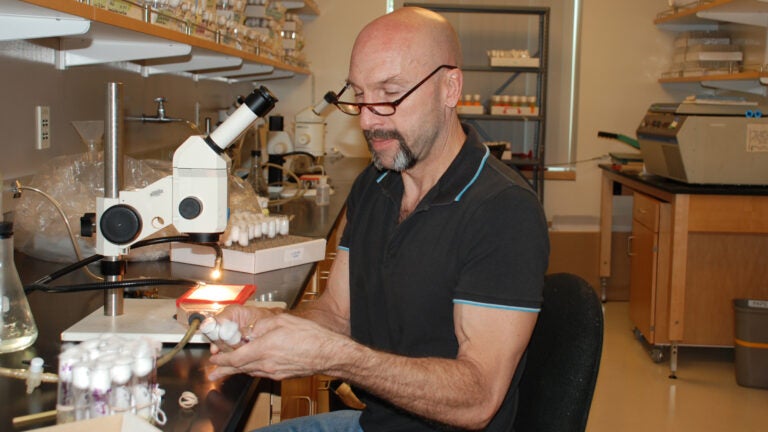
A Flying Fountain of Youth
Fruit flies may be small enough to squish with your finger when they invade your kitchen, but these tiny creatures may soon play an important role in answering the question: Why does one person live longer than another?
John Tower, associate professor of biological sciences, recently received a National Institute on Aging grant to study the effects of aging on Drosophilia melanogaster, a laboratory fruit fly. The $1.5 million, five-year grant titled “Aging-Specific Gene Expression” will focus on how gene expression changes as fruit flies age.
Tower and his research team are looking for genes that turn on or off as the flies grow older. This will provide key insights into the process – what happens to the flies as they age, and how they respond to those changes.
Specifically, his research has been centered on heat shock protein genes, which are induced by heat stress as age increases. Tower has discovered that these genes are promising as a type of biomarker that could reveal the rate of aging in individuals.
“What we’ve found that’s really exciting and that we’ll be pursuing during the next five years is that these heat shock protein genes turn on as a function of age. If we measure how much they’ve turned on in relatively young animals, it’s predictive of how long the animal is going to live,” Tower said.
One of Tower’s long-term research goals is to apply his findings to the human process of aging and formulate ways to keep people healthier as they grow older. “If we can figure out why these heat shock proteins are induced and what they do in flies, they can probably tell us why they’re induced and what they’re doing in humans as well,” he said.
As part of his grant, Tower will also delve into the sexual dimorphism of fruit flies to learn more about how the aging process differs in males and females.
So why fruit flies? The genes that Tower is studying have almost an identical sequence as their human counterparts, which makes Drosophilia ideal for research that may shed light on how humans can live longer, healthier lives. “The more we learn about the process of aging, the more it appears to be very similar in lower organisms as well as humans,” Tower said.